
Find Help
More Items From Ergsy search
-

What is testicular cancer?
Relevance: 100%
-

What is testicular cancer?
Relevance: 99%
-

What is testicular cancer?
Relevance: 99%
-
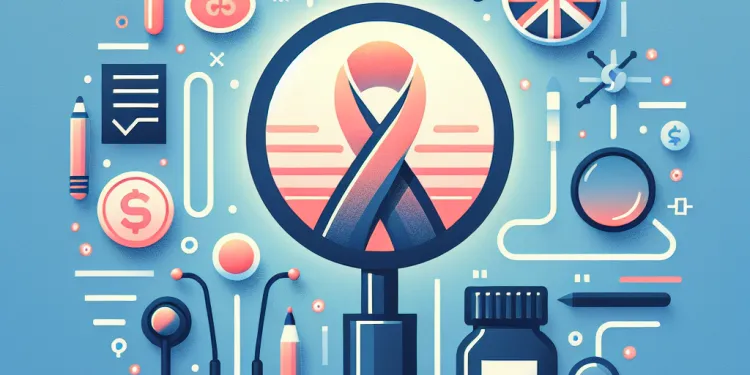
Is testicular cancer treatable?
Relevance: 98%
-

How common is testicular cancer?
Relevance: 96%
-
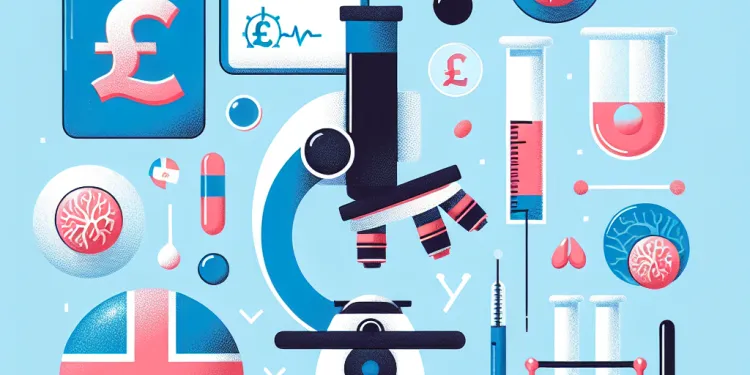
What causes testicular cancer?
Relevance: 96%
-

Who is at risk for testicular cancer?
Relevance: 96%
-
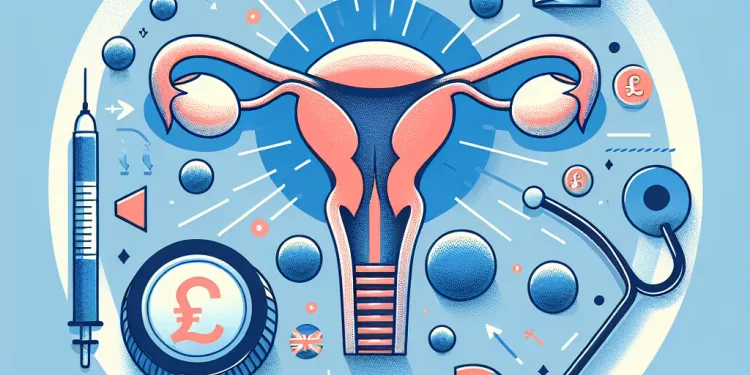
What are the symptoms of testicular cancer?
Relevance: 95%
-

What are the stages of testicular cancer?
Relevance: 94%
-
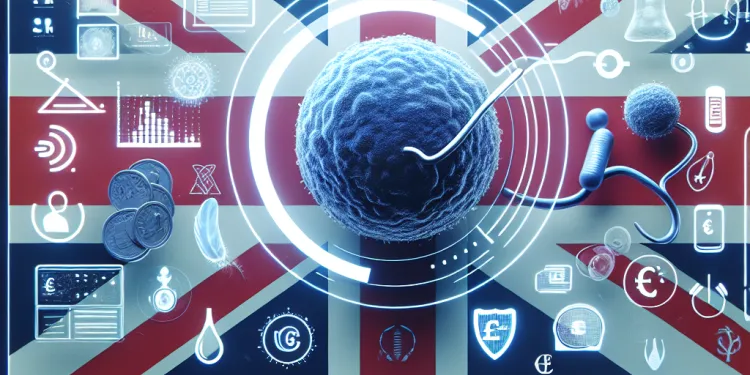
How is testicular cancer diagnosed?
Relevance: 93%
-
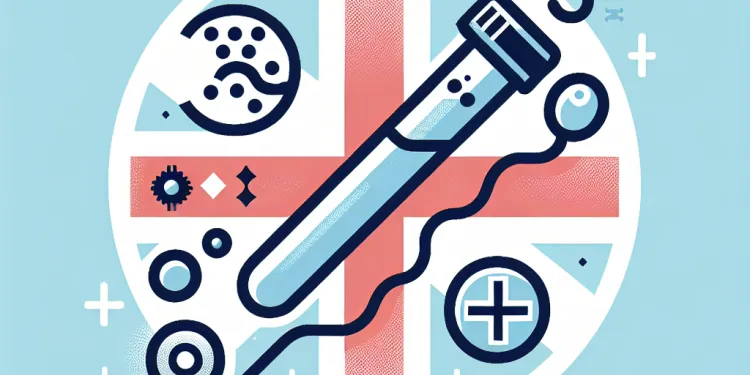
Is fertility affected by testicular cancer?
Relevance: 92%
-

What is the survival rate for testicular cancer?
Relevance: 92%
-
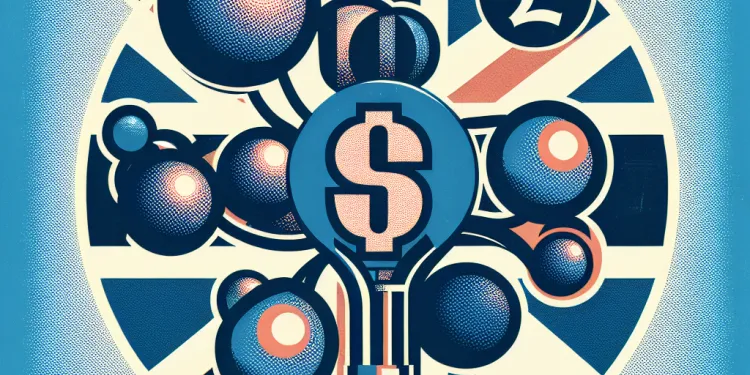
What types of treatments are available for testicular cancer?
Relevance: 89%
-

Are there support groups for those affected by testicular cancer?
Relevance: 87%
-

Can testicular cancer recur after treatment?
Relevance: 87%
-

Can testicular cancer spread to other parts of the body?
Relevance: 87%
-
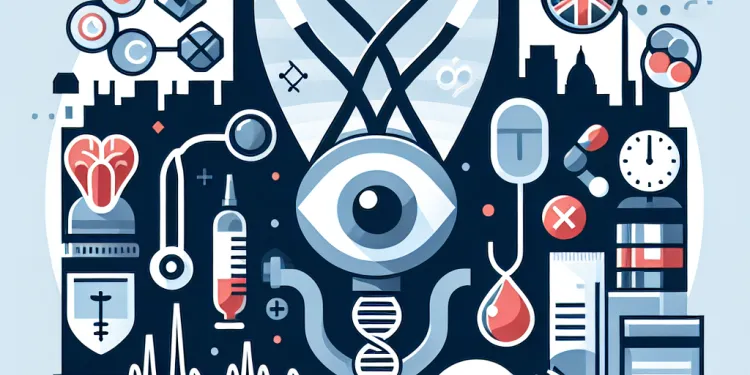
What role do tumor markers play in testicular cancer?
Relevance: 84%
-

Can lifestyle changes help prevent testicular cancer?
Relevance: 84%
-
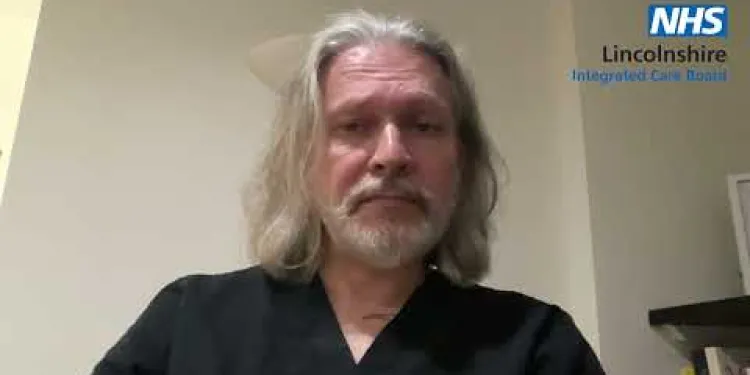
Getting to know your Testicles: Testicular Cancer Awareness with Dr James Howarth, Spilsby Surgery
Relevance: 79%
-

How can I perform a testicular self-exam?
Relevance: 66%
-

When should I see a doctor about potential testicular cancer?
Relevance: 58%
-
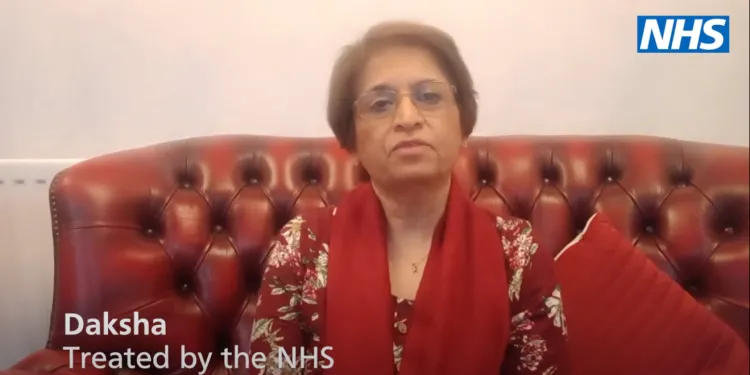
What is Cancer?
Relevance: 37%
-

What are the risk factors for bowel cancer?
Relevance: 37%
-
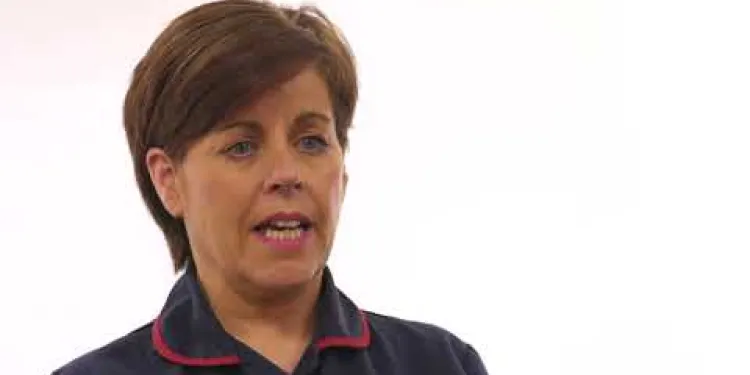
Ovarian Cancer
Relevance: 37%
-
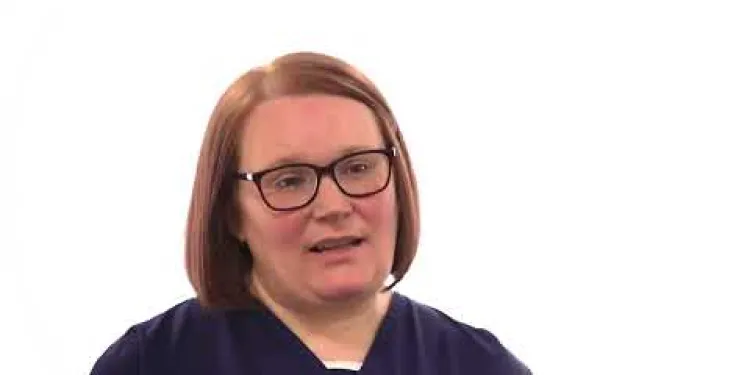
Vaginal Cancer
Relevance: 37%
-
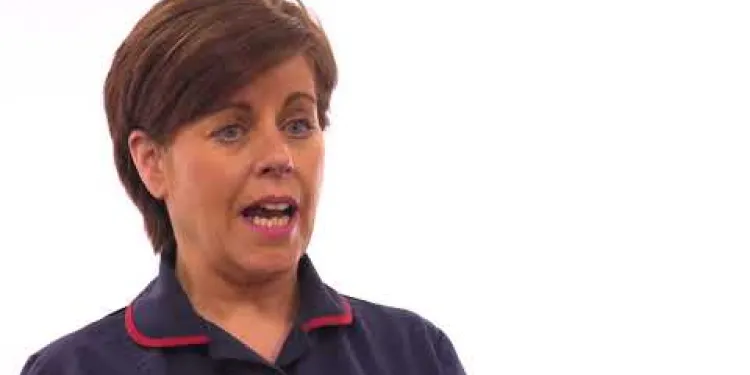
Endometrial Cancer
Relevance: 37%
-
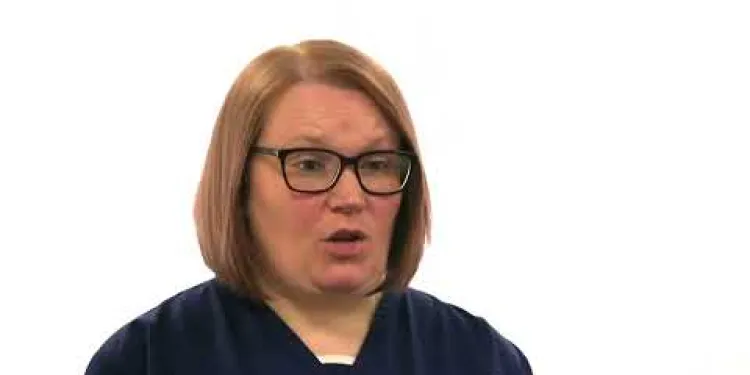
Vulval Cancer
Relevance: 37%
-
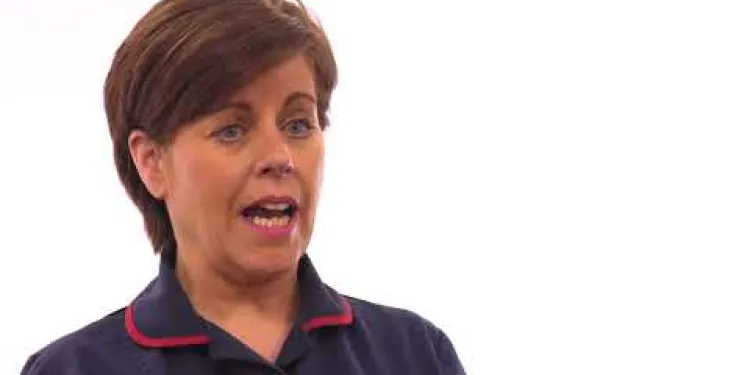
Endometrial Cancer
Relevance: 37%
-
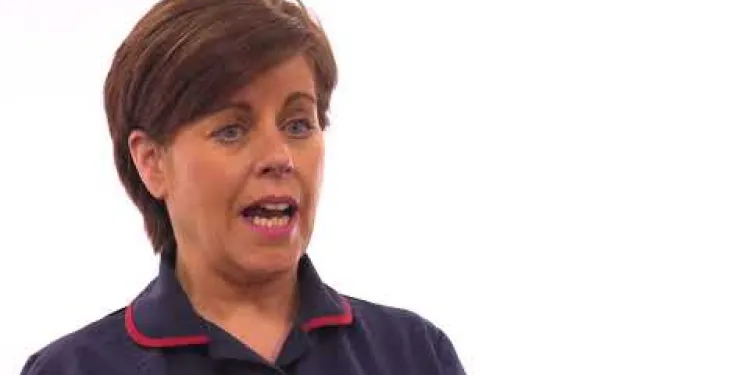
Endometrial Cancer
Relevance: 36%
-
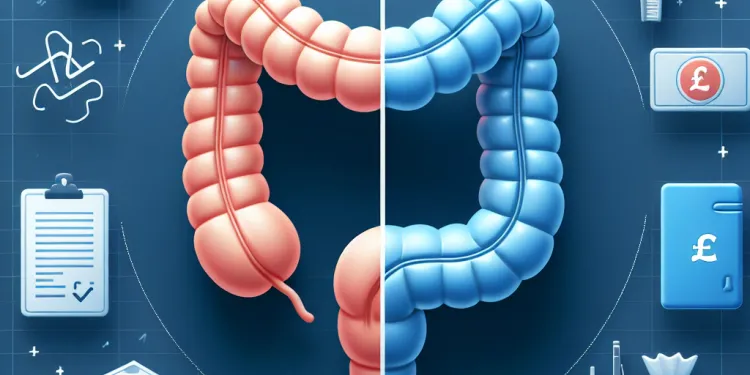
What is the difference between colon cancer and rectal cancer?
Relevance: 36%
-

What is cancer screening?
Relevance: 35%
-

What is colorectal cancer?
Relevance: 35%
-

What is Bowel Cancer?
Relevance: 35%
-
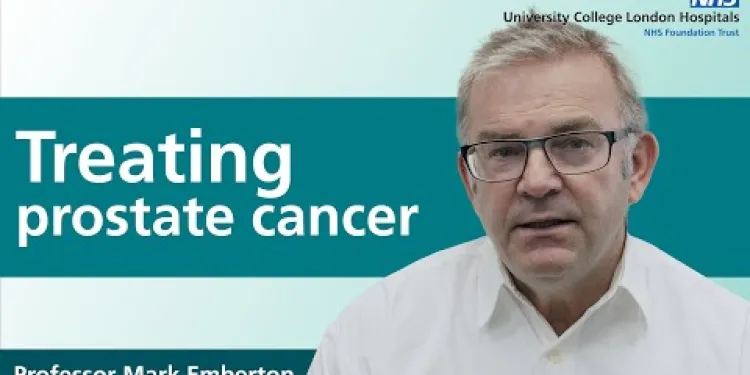
Treating prostate cancer
Relevance: 35%
-
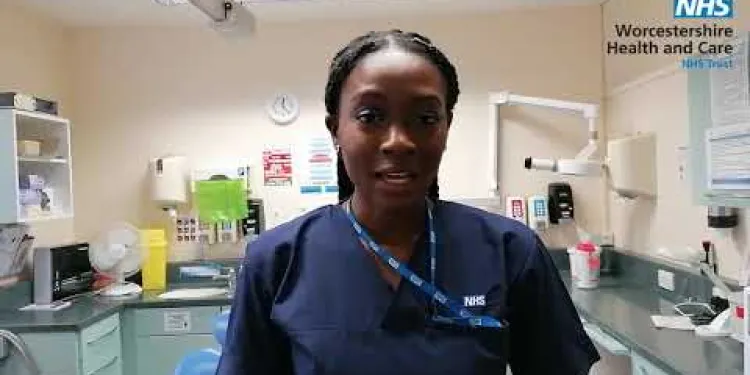
Mouth Cancer Awareness
Relevance: 35%
-
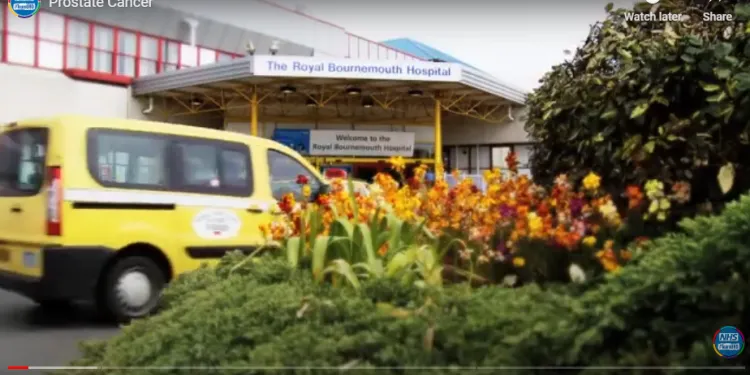
What is Prostate Cancer?
Relevance: 35%
-
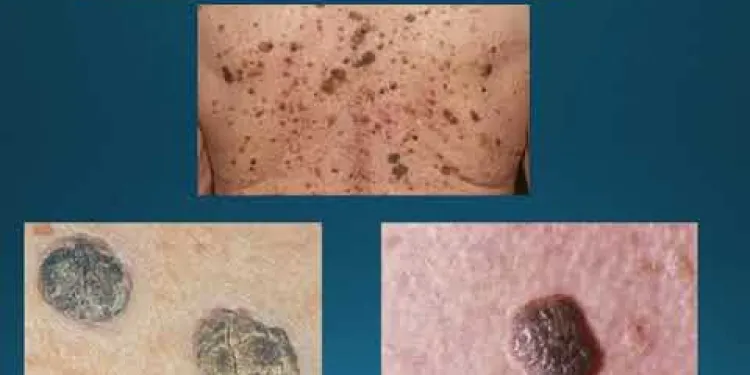
Skin cancer education
Relevance: 35%
-
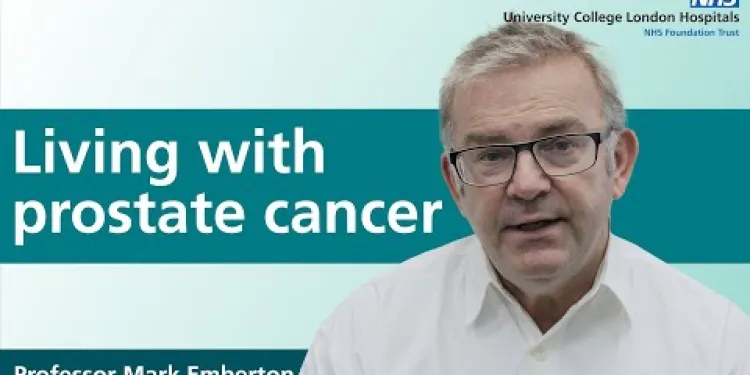
Living with prostate cancer
Relevance: 35%
-
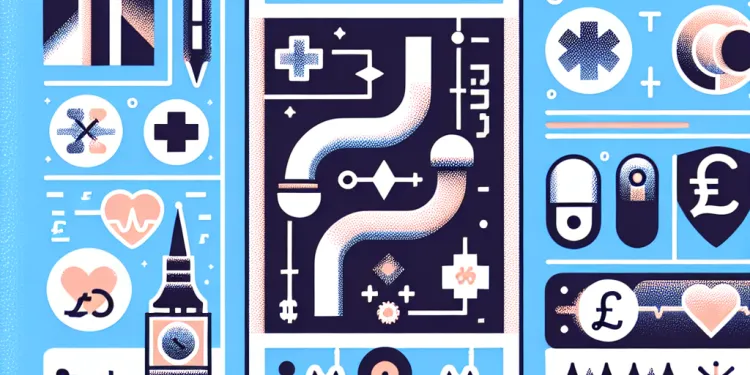
What is Pancreatic Cancer?
Relevance: 35%
-
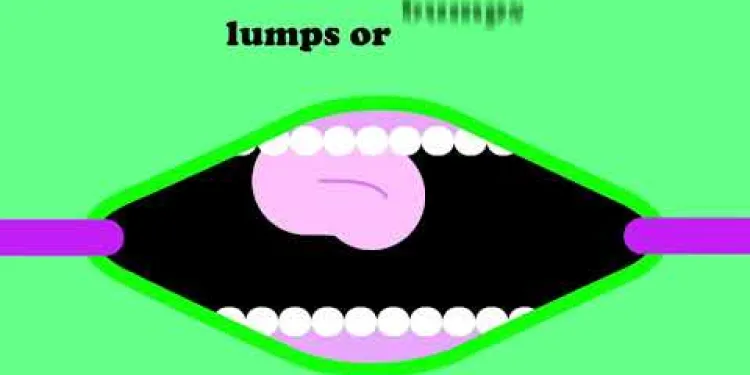
Mouth Cancer Infomercial
Relevance: 35%
What is Testicular Cancer?
Testicular cancer is a type of cancer that develops in the testicles, which are part of the male reproductive system. It is relatively rare compared to other forms of cancer but is the most common cancer in men aged 15 to 49 in the UK. The testicles, or testes, are located in the scrotum, a loose bag of skin underneath the penis. They produce male sex hormones, such as testosterone, and sperm for reproduction.
Types of Testicular Cancer
There are several different types of testicular cancer, but most cases are classified as germ cell tumours. Germ cell tumours account for over 90% of cases and are further divided into two main subtypes: seminomas and non-seminomas. Seminomas tend to occur in older men and have a more gradual growth pattern, while non-seminomas are more aggressive and typically affect younger men. Other, rarer, forms of testicular cancer include Leydig cell tumours and Sertoli cell tumours.
Causes and Risk Factors
The exact cause of testicular cancer is not known, but several factors can increase a man's risk of developing the disease. Cryptorchidism, a condition where one or both testicles fail to descend into the scrotum, is a known risk factor. Family history and previous cancer in one testicle also increase the risk. Additionally, abnormal testicular development, such as in Klinefelter syndrome, can be a factor.
Symptoms of Testicular Cancer
Testicular cancer symptoms can vary but typically include a lump or swelling in one testicle, which may or may not be painful. There may also be a feeling of heaviness in the scrotum or a sudden collection of fluid. Some men experience discomfort or pain in the testicle or scrotum. It is important for men to be aware of these symptoms and seek medical advice promptly if they notice any changes.
Diagnosis and Treatment
Diagnosis of testicular cancer usually involves a physical examination, ultrasound of the testicles, and blood tests for tumour markers such as alpha-fetoprotein (AFP) and human chorionic gonadotropin (HCG). Treatment often starts with orchiectomy, the surgical removal of the affected testicle. Depending on the stage and type of cancer, further treatment may include chemotherapy, radiotherapy, or surveillance.
Prognosis and Survival Rates
The prognosis for testicular cancer is generally very good, even in cases where the cancer has spread. The overall survival rate is high, with around 95% of men surviving beyond five years after diagnosis, according to Cancer Research UK. This is largely due to the effectiveness of treatments such as chemotherapy. Early detection and treatment are crucial in improving outcomes, highlighting the importance of regular self-examinations and prompt medical consultation.
What is Testicular Cancer?
Testicular cancer is when bad cells grow in the testicles. The testicles are part of a man’s body that helps make babies. This kind of cancer is not very common. But it is the most common cancer in young men aged 15 to 49 in the UK. The testicles are inside a bag of skin under the penis. They make special hormones and sperm, which help make babies.
Types of Testicular Cancer
There are different types of testicular cancer. Most of them are called germ cell tumours. This type makes up more than 90% of all testicular cancers. They can be split into two groups: seminomas and non-seminomas. Seminomas grow slowly and usually affect older men. Non-seminomas grow quicker and usually affect younger men. There are also rarer types like Leydig cell tumours and Sertoli cell tumours.
Causes and Risk Factors
We do not know exactly why testicular cancer happens. But there are things that can make the risk higher. If a man's testicles did not move down into the scrotum when they were a baby, it can be a risk. Having a close family member with testicular cancer increases the risk too. Problems with testicle development, like in Klinefelter syndrome, can also make the risk higher.
Symptoms of Testicular Cancer
Signs of testicular cancer can include a lump or swelling in one of the testicles. This might not hurt. You might also feel a heaviness in the scrotum or notice a sudden build-up of fluid. Some men feel discomfort or pain in the area. It is important to know these signs and see a doctor if anything changes.
Diagnosis and Treatment
To check for testicular cancer, doctors will do a physical exam and an ultrasound test on the testicles. They may also do blood tests to look for certain markers. Treatment usually starts with surgery to remove the affected testicle. After that, if needed, more treatment like chemotherapy or radiotherapy might be given. Sometimes, just checking regularly is enough.
Prognosis and Survival Rates
The outlook for testicular cancer is very good. Even if cancer spreads, treatments usually work well. About 95% of men live for more than five years after finding out they have the cancer. Early treatment is important for better outcomes. This is why checking your testicles regularly and seeing a doctor if you notice changes is very important.
Frequently Asked Questions
What is testicular cancer?
Testicular cancer occurs when abnormal cells in the testicles grow uncontrollably to form a tumor.
What are the main types of testicular cancer?
The main types of testicular cancer are germ cell tumors, which include seminomas and non-seminomas.
What are the risk factors for developing testicular cancer?
Risk factors include having an undescended testicle, family history of testicular cancer, and being a young or middle-aged male.
What are common symptoms of testicular cancer?
Common symptoms include a lump in the testicle, swelling, discomfort, or pain in the scrotum or lower abdomen.
How is testicular cancer diagnosed?
Diagnosis usually involves a physical exam, ultrasound, and blood tests to check for tumor markers.
What are tumor markers for testicular cancer?
Tumor markers include AFP, HCG, and LDH which can be elevated in the presence of testicular cancer.
How is testicular cancer treated?
Treatment options include surgery, radiation therapy, and chemotherapy, depending on the type and stage of the cancer.
What is the role of surgery in treating testicular cancer?
Surgery, specifically an orchiectomy, involves removing the affected testicle and is a primary treatment for most testicular cancers.
Can testicular cancer spread to other parts of the body?
Yes, testicular cancer can metastasize, most commonly to the lymph nodes, lungs, liver, and brain.
Is testicular cancer curable?
Testicular cancer is highly treatable and often curable, particularly when detected early.
What is the survival rate for testicular cancer?
The overall 5-year survival rate for testicular cancer is over 95%, with early-stage cancer having an even higher survival rate.
How can testicular cancer be prevented?
There is no known way to prevent testicular cancer, but early detection through regular self-exams can improve outcomes.
Who is most at risk for developing testicular cancer?
Testicular cancer is most common in men aged 15 to 35 years, particularly those with a history of cryptorchidism or family history.
What is a self-exam for testicular cancer?
A self-exam involves checking for lumps or changes in the testicles, and is recommended monthly for early detection.
Does having testicular cancer affect fertility?
Testicular cancer and some treatments can affect fertility, so sperm banking before treatment is often recommended.
How often should men perform testicular self-exams?
Men should perform testicular self-exams monthly to familiarize themselves with their testicles and detect changes early.
What lifestyle changes can help manage testicular cancer?
Maintaining a healthy lifestyle, following treatment plans, and attending follow-up appointments are important for managing testicular cancer.
What should a person do if they find a lump on their testicle?
If a lump is found, it's important to see a doctor promptly for an evaluation and possible testing.
Can testicular cancer recur after treatment?
There is a possibility of recurrence, so regular follow-up care is crucial for monitoring and managing any returning cancer.
Are there support groups for those with testicular cancer?
Yes, there are many support groups and resources available for those affected by testicular cancer, including online communities and local support groups.
What is testicular cancer?
Testicular cancer is when bad cells grow in a man's testicles. Testicles are in the lower part of the man's body. They make sperm and hormones.
If you find a lump or feel pain in the testicles, tell a doctor. It is important to check with a doctor to make sure everything is okay.
To understand more, you can use pictures or talk to someone who can help explain it. Always ask questions if you are not sure.
Testicular cancer happens when bad cells in the testicles grow too much and make a lump.
What are the main kinds of testicular cancer?
There are different types of cancer that can grow in the testicles.
The most common types are called germ cell tumors. These include two main kinds:
1. Seminomas
2. Non-seminomas
It's important to talk to a doctor if you have questions or need help.
What makes it more likely to get testicular cancer?
Here are some things that might make a person more likely to get testicular cancer:
- If someone in your family had testicular cancer.
- If you have an undescended testicle. This means one or both of your testicles didn’t move down to where they were supposed to be when you were a baby.
- If you are white, you might have a higher chance of getting testicular cancer.
- If you had testicular cancer before, you might have a risk of getting it again.
These are just things that might increase the chance. It doesn't mean you will definitely get testicular cancer.
You can talk to a doctor if you are worried. Reading information with a friend or using pictures and videos can help too.
Some things can make it more likely for someone to get this type of cancer. These things include:
- Having a testicle that hasn't moved down properly.
- If someone in your family has had testicular cancer before.
- Being a young or middle-aged man.
To understand better, you can:
- Ask a doctor to explain it to you.
- Use pictures or videos to help learn.
What signs might show testicular cancer?
If you have this, you might see a bump in your ball, or it might feel sore or hurt in the bag or tummy area.
How do doctors find out if someone has testicular cancer?
To find out what is wrong, the doctor will:
- Look at your body (this is called a physical exam).
- Use a special machine to see inside your body (this is called an ultrasound).
- Take a little bit of your blood to do some tests.
The blood tests can help find signs of sickness. These signs are called tumor markers.
What are signs of testicular cancer?
Tumor markers are special signs in the body that might mean someone has testicular cancer. Doctors can find these signs with a blood test. The blood tests look for three main signs: AFP, HCG, and LDH. If you or someone you know is worried about testicular cancer, it is a good idea to talk to a doctor. They can help and explain more.
Supportive Tools: You can use pictures to help understand this. Ask a trusted adult to help explain. Keep information simple and clear.
Tumor markers are like little signs that can show if there might be cancer. The names of these markers are AFP, HCG, and LDH. They can get higher if there is cancer in the testicles.
How do doctors help if someone has testicular cancer?
Different ways to treat cancer are:
- Surgery: Doctors take out the cancer with an operation.
- Radiation therapy: Special rays are used to kill cancer cells.
- Chemotherapy: Medicine is used to stop cancer from growing.
The doctor will choose the best way based on the kind of cancer and how serious it is.
How does surgery help fix testicular cancer?
Surgery can help if someone has testicular cancer. Here is what happens:
- The doctor takes out the testicle that is sick.
- This helps to stop the cancer from spreading.
- After surgery, doctors check to see if the cancer is all gone.
It is important to get help from doctors and talk to them if you feel worried. Family and friends can also support you.
Surgery is a way to treat testicular cancer. This surgery is called an orchiectomy. It means taking out the testicle that is sick. This is the main treatment for most cases of testicular cancer.
If you need help reading, you can use a ruler to follow the words. Listening to the text read out loud can also be very helpful.
Can cancer in the testicles move to other parts of the body?
Yes, cancer in the testicles can move to other places in the body. This is called "spreading" or "metastasis." It can go to the lungs, liver, or other areas.
If you want to learn more, you can ask a doctor or nurse. Reading simple books or watching videos for kids can also help.
Yes, testicular cancer can spread to other parts of the body. It usually spreads to the lymph nodes, lungs, liver, and brain.
Can testicular cancer be cured?
Testicular cancer can often be cured. Most people who get treated get much better.
If you think you have this cancer, see a doctor. Treatment can help.
Doctors and nurses know a lot about how to help.
Testicular cancer is a kind of cancer that can often be fixed. It's even easier to treat when doctors find it early.
How many people get better from testicular cancer?
Testicular cancer is a type of cancer that affects the testicles. Many people with this cancer get better and live for a long time. Doctors have special numbers called "survival rates" which show how many people get better.
If you want to learn more or need help understanding, you can:
- Ask a doctor to explain it to you.
- Use simple words when reading about it online.
- Have someone read the information with you.
If caught early, almost everyone who has testicular cancer can get better. After 5 years, more than 95 out of 100 people are still healthy.
How can you stop testicular cancer?
There is no sure way to stop testicular cancer, but you can do things to help catch it early:
- Check your testicles every month. You can do this in the shower when it's warm.
- If you feel any lumps or something different, tell a doctor.
Here are some tools to help:
- Ask a grown-up to help you check.
- Use a calendar to remind you to check every month.
We don't know how to stop testicular cancer from happening. But you can catch it early if you check yourself often. This helps doctors treat it better.
Who is most likely to get testicular cancer?
Some people are more likely to get testicular cancer. These include:
- Boys and men aged 15 to 35.
- People with a family history of testicular cancer.
- People with an undescended testicle.
- People with abnormal testicle development.
It is important to have regular check-ups with a doctor and look out for any changes. Tools like picture charts and simple guides can help explain things better.
Testicular cancer happens a lot in men who are 15 to 35 years old. It is more likely if they had a problem called cryptorchidism when they were born, or if someone in their family had it before.
What is a self-check for testicular cancer?
A self-check for testicular cancer is when you check your testicles to see if anything feels different or unusual. You can do this at home. It's important to check your testicles regularly.
If you notice any lumps or bumps, tell an adult or a doctor. They can help you know what to do next.
You can ask someone you trust to help you understand how to do a self-check. There are also videos and guides online that show you how to do it.
Checking your testicles is important. This means looking for any lumps or changes. It is good to do this once every month. Checking can help you find problems early.
Can testicular cancer make it hard to have a baby?
Testicular cancer and some of its treatments can make it harder to have children in the future. So, doctors often suggest saving some sperm in a sperm bank before starting treatment.
How often should men check their testicles?
Men should check their testicles once a month. This helps them notice any changes.
Tools and Tips:
- Use a mirror to see better.
- Check after a warm shower when the skin is relaxed.
- Ask a doctor if unsure.
Men should check their testicles every month. This helps them learn what is normal. Then, they can see if anything changes early.
How can changing my habits help with testicular cancer?
If you have testicular cancer, changing some habits can help. Here are some simple steps:
- Eat healthy food: Eat lots of fruits and veggies. They are good for your body.
- Exercise: Try to move your body every day. Walking or playing sports is fun and healthy.
- Rest well: Sleep enough at night. It helps your body heal and feel good.
- Quit smoking: If you smoke, try to stop. It’s better for your health.
- Talk to someone: If you feel worried, talk to a friend, family member, or a counselor.
These changes can help you feel better and support your health.
You can use tools like a calendar to remember your goals, or apps to help track your exercise and meals.
To stay healthy and manage testicular cancer, you should:
- Live a healthy life.
- Follow doctor's treatment plans.
- Go to check-up visits with your doctor.
Using pictures or reminders can help you remember appointments. Talking to friends or family about your health can also be helpful.
What to Do If You Find a Bump on Your Testicle
If you feel a bump on your testicle, don't be scared. Here is what you can do:
- Tell a grown-up you trust. This might be a parent, a teacher, or a nurse.
- Visit a doctor. Doctors can help and make sure everything is okay.
- Don't wait too long to talk to someone. It’s important to get help soon.
Remember, it's okay to ask for help. Doctors and nurses are there to keep you healthy.
If you find a lump, it's important to see a doctor quickly. The doctor can check it and do some tests if needed.
Can testicular cancer come back after treatment?
Yes, testicular cancer can come back after treatment. This is called a recurrence. Doctors will check you regularly to make sure the cancer has not come back.
Here are some things that can help:
- Keep going to your checkups.
- Ask questions if you are worried or unsure.
- Talk to someone you trust about how you feel.
Cancer might come back, so it is important to go to the doctor for regular check-ups. These visits help the doctor find and take care of any cancer that returns.
Are there groups that help people with testicular cancer?
Yes, there are groups that can help.
These groups are for people with testicular cancer.
They talk about feelings and share stories. They help you feel better.
You can ask your doctor or nurse to find a group.
There are also websites that can help you find a group.
These websites have information and support.
Yes, there are lots of ways to get help if you have testicular cancer. You can find groups online where people talk and support each other. There are also groups you can go to near where you live.
Useful Links
This website offers general information and is not a substitute for professional advice.
Always seek guidance from qualified professionals.
If you have any medical concerns or need urgent help, contact a healthcare professional or emergency services immediately.
Some of this content was generated with AI assistance. We’ve done our best to keep it accurate, helpful, and human-friendly.
- Ergsy carfully checks the information in the videos we provide here.
- Videos shown by Youtube after a video has completed, have NOT been reviewed by ERGSY.
- To view, click the arrow in centre of video.
- Most of the videos you find here will have subtitles and/or closed captions available.
- You may need to turn these on, and choose your preferred language.
- Go to the video you'd like to watch.
- If closed captions (CC) are available, settings will be visible on the bottom right of the video player.
- To turn on Captions, click settings .
- To turn off Captions, click settings again.
More Items From Ergsy search
-

What is testicular cancer?
Relevance: 100%
-

What is testicular cancer?
Relevance: 99%
-

What is testicular cancer?
Relevance: 99%
-

Is testicular cancer treatable?
Relevance: 98%
-

How common is testicular cancer?
Relevance: 96%
-

What causes testicular cancer?
Relevance: 96%
-

Who is at risk for testicular cancer?
Relevance: 96%
-

What are the symptoms of testicular cancer?
Relevance: 95%
-

What are the stages of testicular cancer?
Relevance: 94%
-

How is testicular cancer diagnosed?
Relevance: 93%
-

Is fertility affected by testicular cancer?
Relevance: 92%
-

What is the survival rate for testicular cancer?
Relevance: 92%
-

What types of treatments are available for testicular cancer?
Relevance: 89%
-

Are there support groups for those affected by testicular cancer?
Relevance: 87%
-

Can testicular cancer recur after treatment?
Relevance: 87%
-

Can testicular cancer spread to other parts of the body?
Relevance: 87%
-

What role do tumor markers play in testicular cancer?
Relevance: 84%
-

Can lifestyle changes help prevent testicular cancer?
Relevance: 84%
-

Getting to know your Testicles: Testicular Cancer Awareness with Dr James Howarth, Spilsby Surgery
Relevance: 79%
-

How can I perform a testicular self-exam?
Relevance: 66%
-

When should I see a doctor about potential testicular cancer?
Relevance: 58%
-

What is Cancer?
Relevance: 37%
-

What are the risk factors for bowel cancer?
Relevance: 37%
-

Ovarian Cancer
Relevance: 37%
-

Vaginal Cancer
Relevance: 37%
-

Endometrial Cancer
Relevance: 37%
-

Vulval Cancer
Relevance: 37%
-

Endometrial Cancer
Relevance: 37%
-

Endometrial Cancer
Relevance: 36%
-

What is the difference between colon cancer and rectal cancer?
Relevance: 36%
-

What is cancer screening?
Relevance: 35%
-

What is colorectal cancer?
Relevance: 35%
-

What is Bowel Cancer?
Relevance: 35%
-

Treating prostate cancer
Relevance: 35%
-

Mouth Cancer Awareness
Relevance: 35%
-

What is Prostate Cancer?
Relevance: 35%
-

Skin cancer education
Relevance: 35%
-

Living with prostate cancer
Relevance: 35%
-

What is Pancreatic Cancer?
Relevance: 35%
-

Mouth Cancer Infomercial
Relevance: 35%


